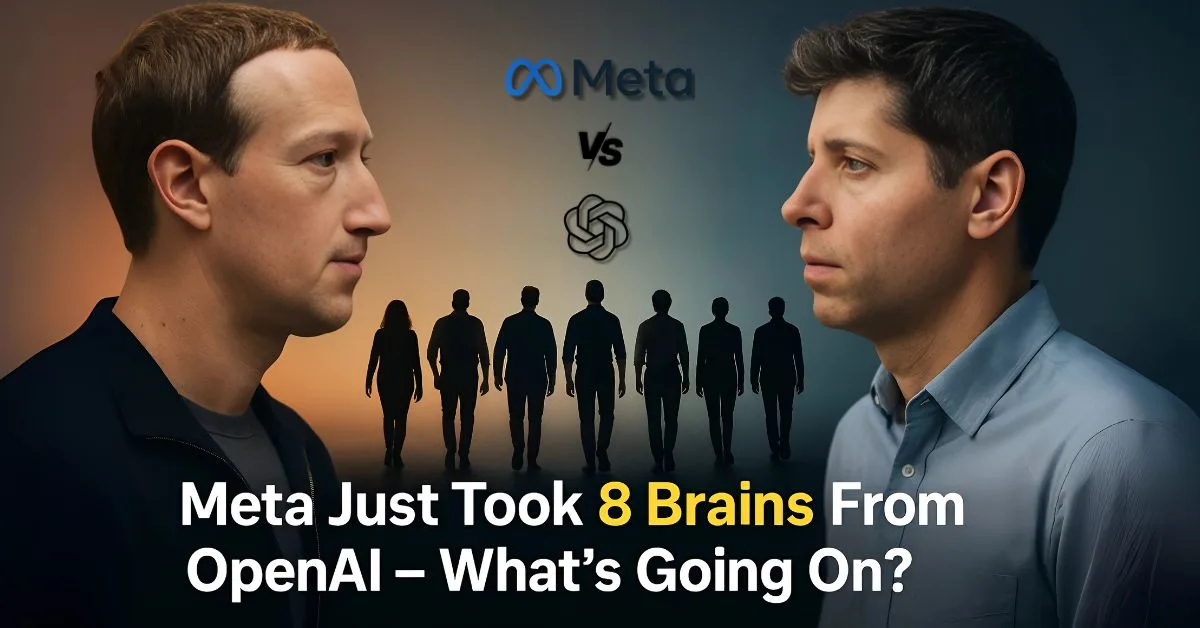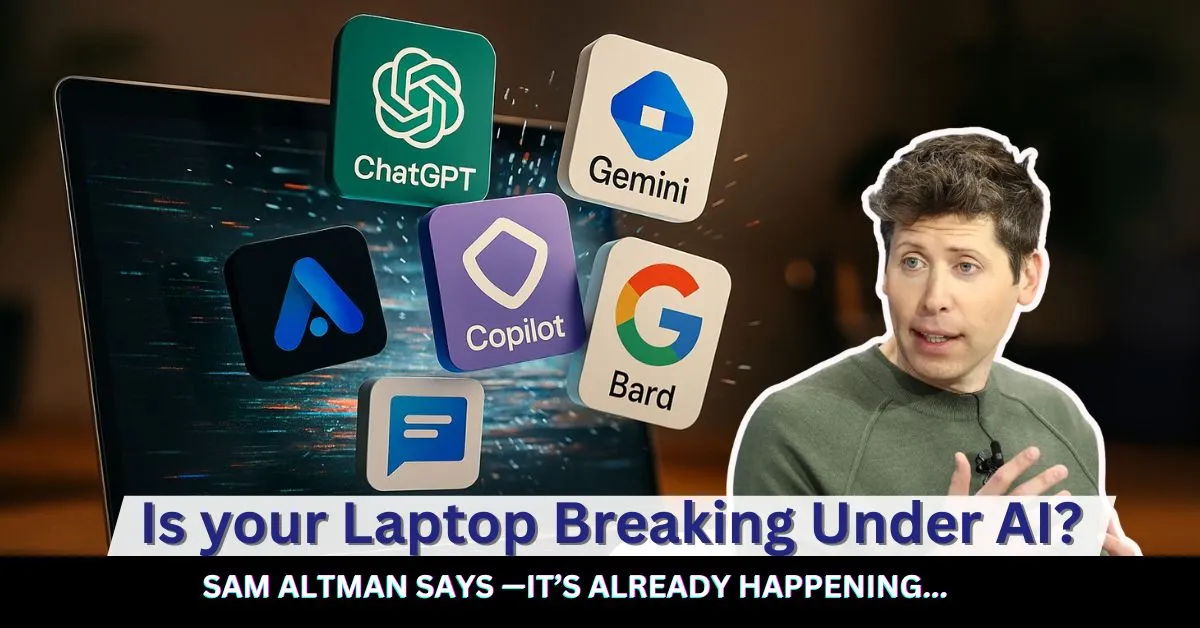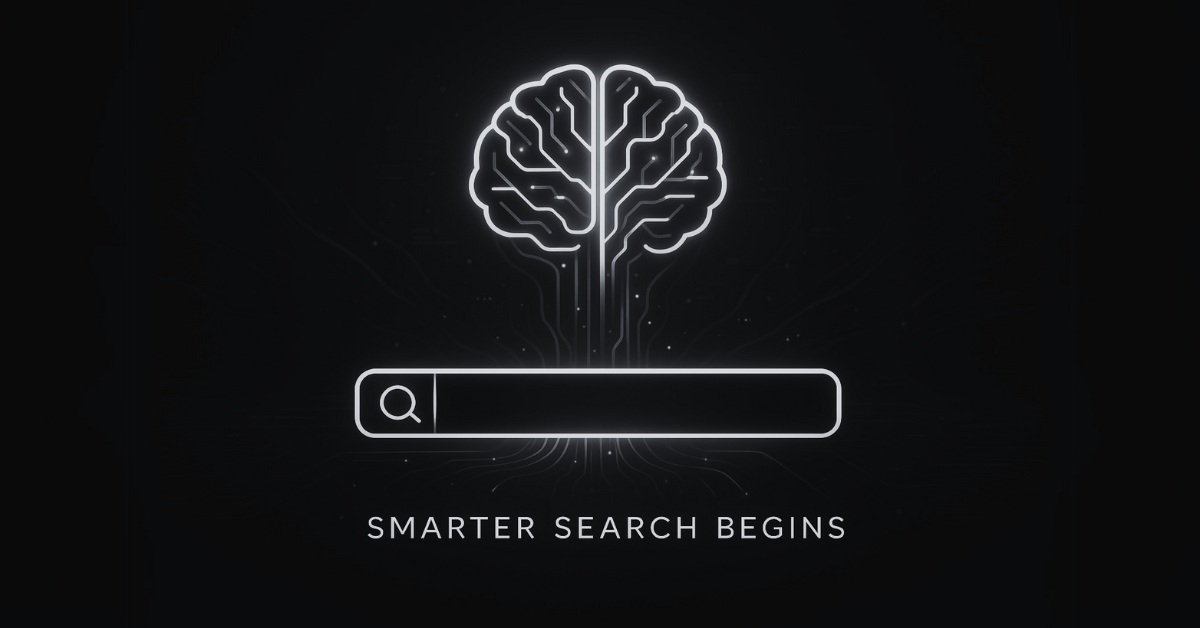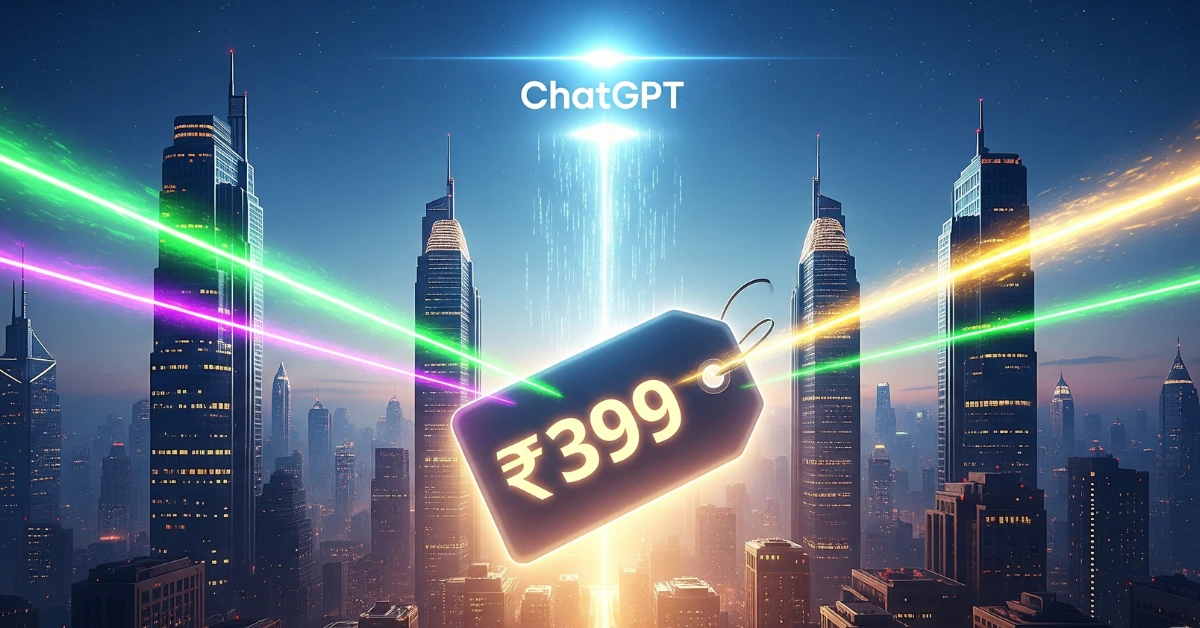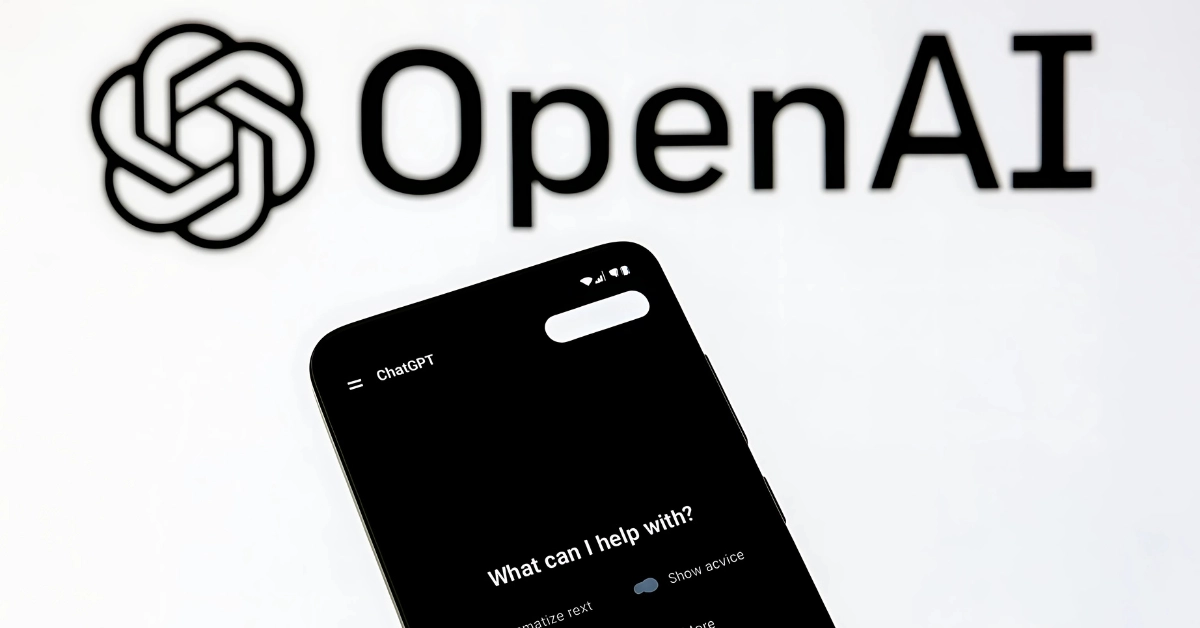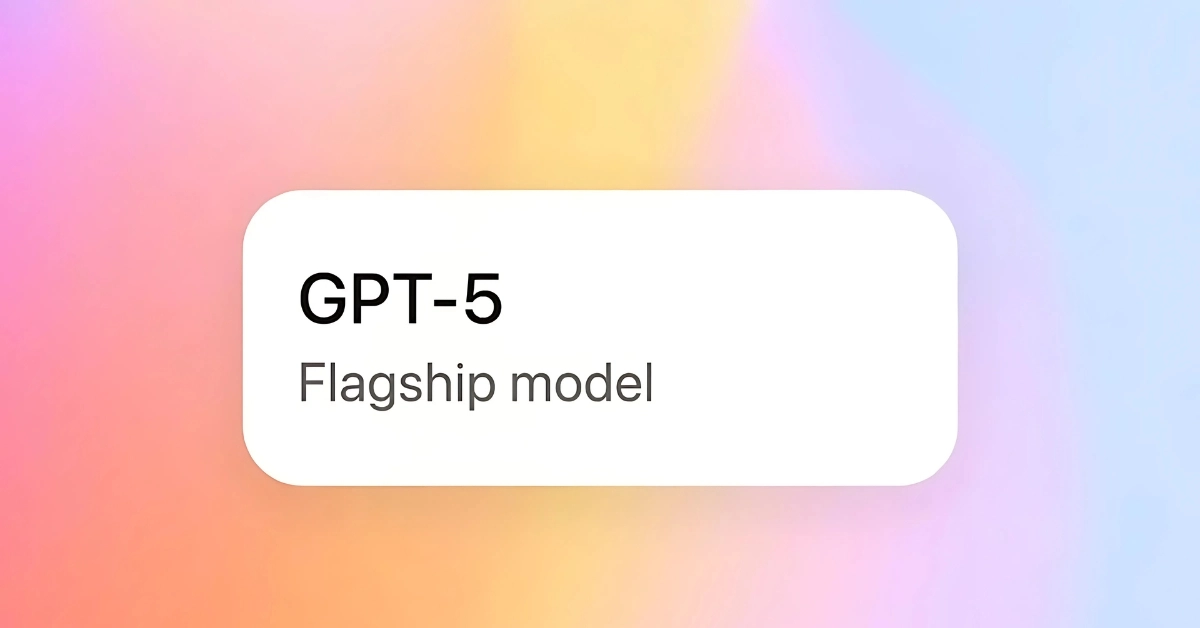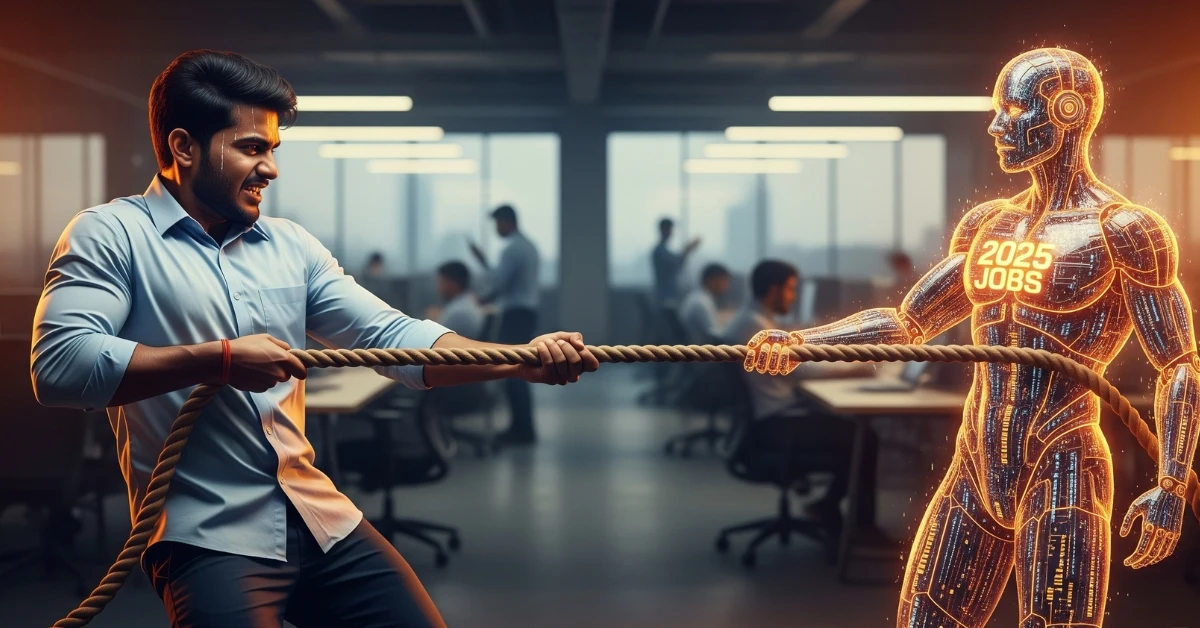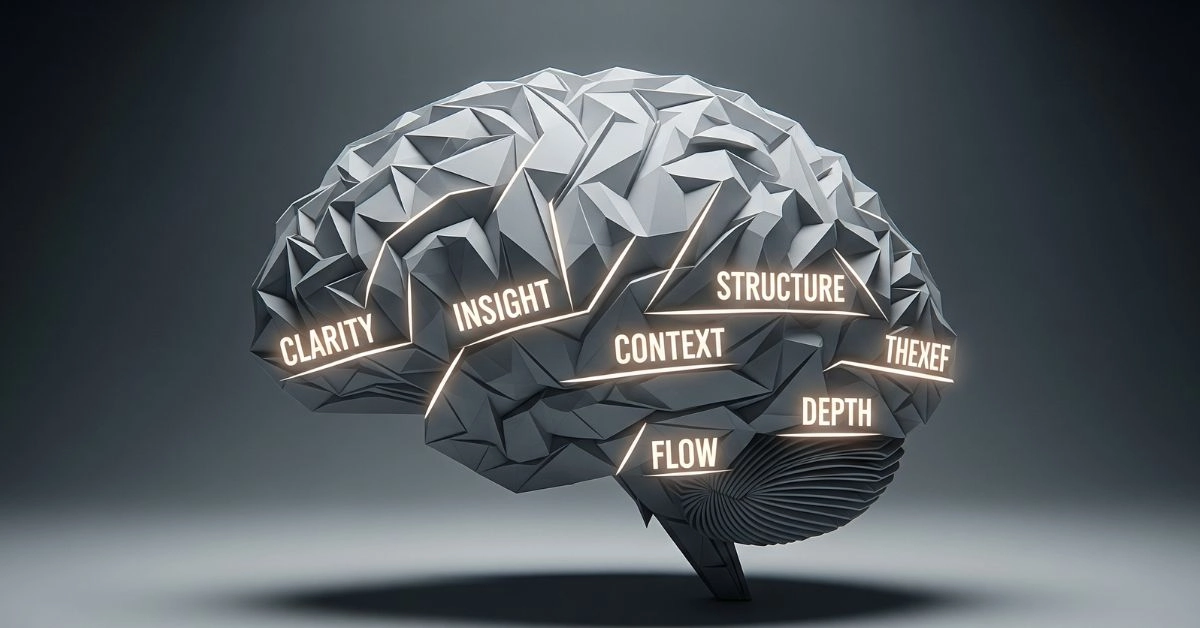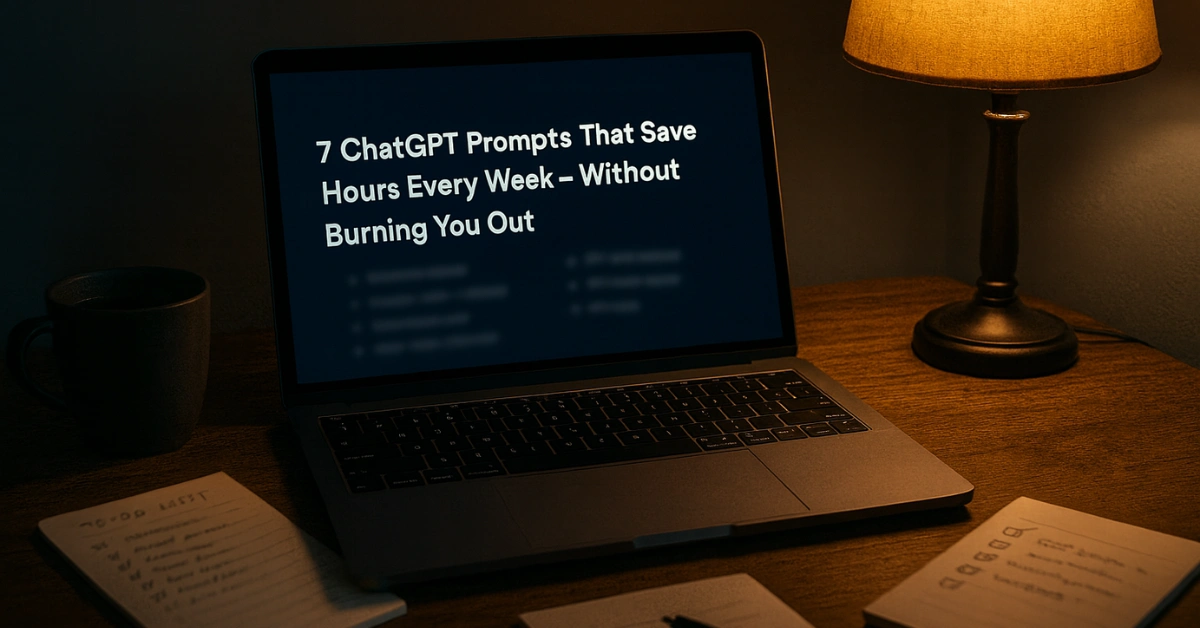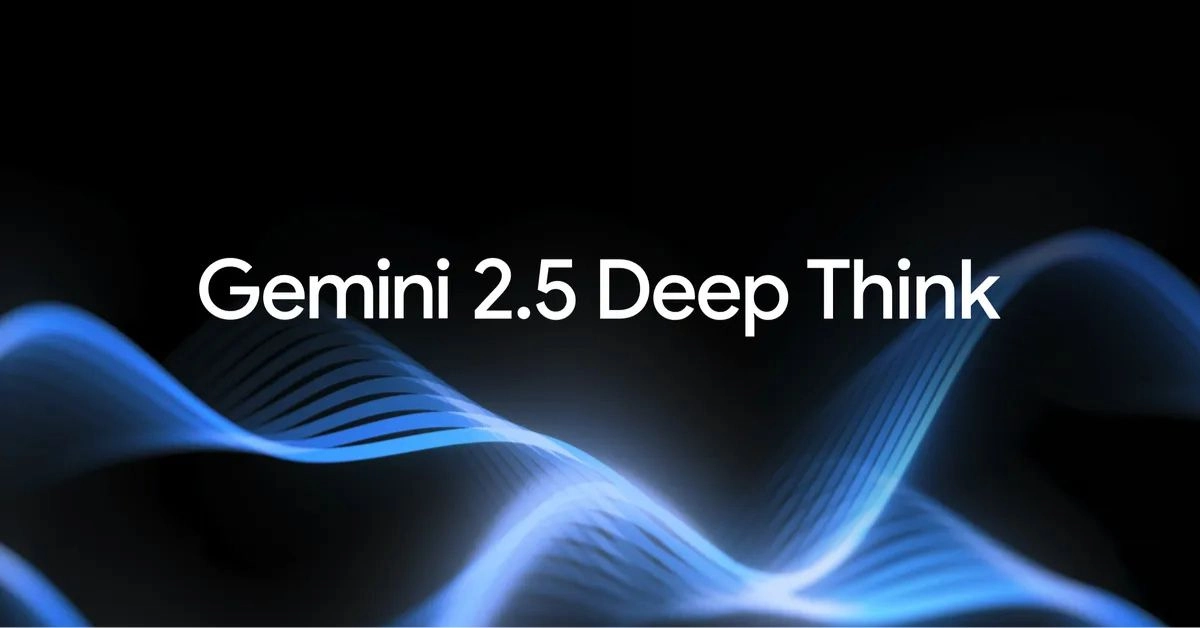Written by Mohit Singhania | Updated: June 30, 2025 | 10 min read
Intro
This is no ordinary hiring spree. Meta just poached eight of OpenAI’s top researchers in under two weeks. Public denials, leaked memos, burnout, and ₹800 crore headlines are flying everywhere. But here’s the real story no headline captured: this AI talent war is not about numbers. It is about trust. It is about belief. And someone’s clearly losing both.
It All Started With One Podcast And One Explosive Claim
Sam Altman didn’t need to say it twice. During his brother’s Uncapped podcast, he casually claimed Meta had offered OpenAI researchers “$100 million signing bonuses.” That one sentence blew up the internet, fueling a thousand headlines about AI’s version of Wall Street madness.
But behind the clickbait was something deeper. It was a panic signal. Altman was trying to call out a raid on his talent pool, and he was doing it publicly.
Meta CTO Hits Back: “That’s Not What’s Happening”
Meta wasn’t going to let that narrative run wild. At a company-wide meeting shortly after, CTO Andrew Bosworth went straight for the throat.
“Sam is being dishonest here,” he told employees. “He makes it sound like everyone’s getting $100 million. That’s not true.”
Bosworth explained that while Meta’s AI hiring strategy includes attractive compensation, very few people ever see that kind of offer. And even then, it’s not a single cheque. It is multi-year equity, tied to impact.
In other words, Altman’s podcast line may have been part truth, part tactic.
The Researchers Speak: “Fake News, But We’re Joining Meta”
Then the researchers themselves stepped in. On June 26, Lucas Beyer posted on X:
“Hey all, couple quick notes:\n1) Yes, we will be joining Meta.\n2) No, we did not get 100M sign-on. That’s fake news.”
He tagged Alexander Kolesnikov and Xiaohua Zhai, both fellow OpenAI researchers based in Zurich. These weren’t interns. They were key contributors to OpenAI’s Europe-based foundational AI team.
Their denial didn’t just debunk the number. It flipped the narrative. They didn’t jump for money. They jumped because Meta’s mission spoke louder.
And that shook OpenAI to its core.
Trapit Bansal’s Exit Made It Personal
The story didn’t end there. Just days later, news broke that Trapit Bansal, a senior researcher who helped shape OpenAI’s o1 reasoning model, had joined Meta too. Bansal wasn’t just another name. He was the kind of researcher companies build around. He joined OpenAI in 2022 and worked directly with co-founder Ilya Sutskever.
If Beyer’s group opened the floodgates, Bansal’s exit felt like the dam collapsing.
Four More Names. Zero Reversals. And One Very Clear Message
By June 29, four more OpenAI researchers were confirmed to have accepted Meta offers:
- Shengjia Zhao
- Jiahui Yu
- Shuchao Bi
- Hongyu Ren
That brought the total to eight confirmed exits in less than 14 days. These weren’t scattered losses. They were strategic, concentrated, and clearly coordinated.
OpenAI didn’t lose random employees. It lost a full layer of core builders.
To put it lightly, this wasn’t a leak. It was a landslide.
Mark Chen’s Internal Memo: “It Feels Like A Break-In”
Meanwhile, inside OpenAI, emotions were running high.
On June 29, Wired published excerpts from an internal Slack message sent by OpenAI’s Chief Research Officer Mark Chen. His words said everything:
“I feel a visceral feeling right now, as if someone has broken into our home and stolen something.”
He told staff they were “not sitting idly by.” He and Altman were talking to every researcher with an offer, recalibrating compensation, and trying to hold the line.
Another leader added,
“If Meta pressures you or makes ridiculous exploding offers, tell them to back off. This is your career, not their scoreboard.”
This wasn’t just a comp issue anymore. This was a company trying not to bleed out on its own Slack channel.
Why Is Meta So Desperate To Win Right Now?
To understand why Meta is going this hard, you have to look at what’s been going wrong.
Its most recent LLaMA 4 model didn’t land with the kind of splash they were hoping for. Industry feedback was lukewarm. Benchmarks weren’t transparent. Meanwhile, OpenAI, Google, and even smaller players like Anthropic were moving faster and grabbing more attention.
Zuckerberg responded the only way he knows how. He scaled up. He created a new 50-person AI superintelligence team, personally reached out to researchers, invested $14.3 billion in Scale AI, and started hiring with near-startup intensity.
And yes, those offers might not be $100 million, but they’re high enough to break loyalty.
Inside OpenAI: Burnout, Belief Crisis, and the Fear of Delay
On the other side, things weren’t exactly calm either.
Multiple sources told Wired and TechCrunch that OpenAI employees are grinding 80-hour weeks. They’re pushing product updates on tight cycles. And while the public sees innovation, insiders are seeing burnout.
The company even announced a recharge week to cool things down. But leadership feared Meta would use that exact window to apply pressure and push more offers. That fear says everything.
Worse, if this brain drain continues, timelines for GPT-5, safety tools, and next-gen multimodal systems could slow down significantly.
In short, this is no longer just a retention issue. It’s a delivery risk, one that could dent OpenAI’s dominance in 2025.
We’ve seen this story before, and it always ends the same.
This isn’t the first time Silicon Valley has gone to war over brains.
In the early 2000s, Google and Microsoft fought over search engineers. Apple and Tesla traded chip talent like cricket teams swapping captains. The winner? Always the company that told the more compelling story, not the one who paid the most.
Meta knows that. And OpenAI knows it too.
What the Talent Is Really Listening To
Here’s the truth people outside this industry don’t get.
Researchers at this level don’t switch jobs because of stock options alone. They move because they believe in the mission. Because they trust the roadmap. Because they think they’ll be heard.
For eight OpenAI researchers, Meta made that promise clearer. That’s what this whole story is really about.
Not compensation. Not ego. Not headlines.
Belief.
Final Thoughts
OpenAI says its best people haven’t left. Meta says it’s just hiring smarter. Researchers say they just want to build.
But underneath it all, this AI talent war has exposed the fragile lines between hype, vision, and leadership.
Zuckerberg is playing a long game. Altman is trying to hold his ground. And everyone else is watching to see who gets to define intelligence for the next generation.
In AI, models may build the future, but people decide what that future looks like.
And once they’re gone, you can’t fine-tune that back into your roadmap.

